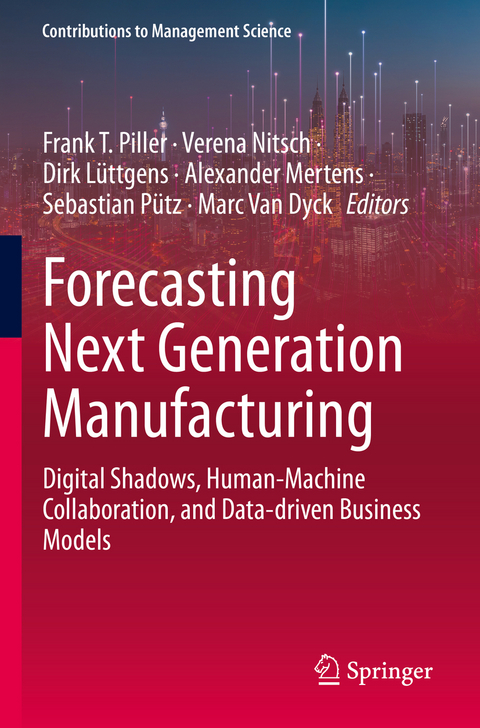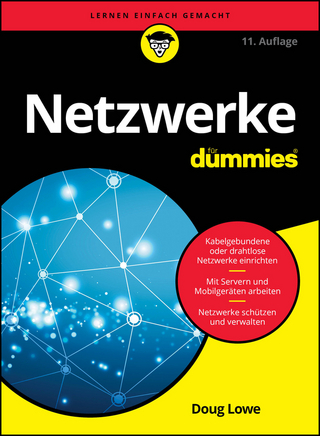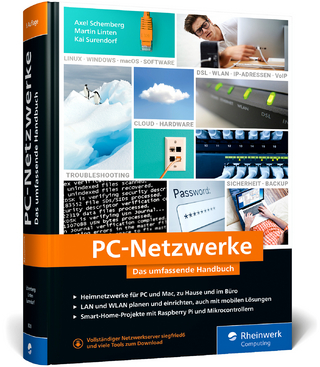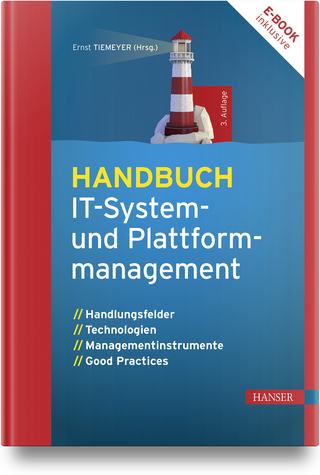
Forecasting Next Generation Manufacturing
Springer International Publishing (Verlag)
978-3-031-07736-4 (ISBN)
Manufacturing companies have just begun to implement the concepts of the Fourth Industrial Revolution (Industry 4.0) on a larger scale. Still, this area is characterized by a rapid pace of technological change, blurring boundaries between physical, digital, and biological systems, and a quickly changing growing political, economic, and social environment -- leading to high uncertainty in decision making and many questions about the future development in this field.
To provide guidance and inspiration for managers and academics on the future of digital manufacturing systems, this book presents the results of an extensive Delphi study on next-generation manufacturing systems, with a projection period of up to 2030. We analyzed almost 2000 quantitative estimations and more than 600 qualitative arguments from a large panel of industrial and academic experts from Europe, North America, and Asia. The book describes each of the 24 projections in detail, offering current case study examples and related research, as well as implications for policymakers, firms, and individuals. The empirical results also allowed us to build scenarios for the most probable future along the dimensions of governance, organization, capabilities, and interfaces from both a company-internal and an external (network) perspective.lt;p>Frank T. Piller has headed the Institute for Technology and Innovation Management at RWTH Aachen University (Germany) since 2007. Earlier, he worked at the MIT Sloan School of Management (USA) and was an Assistant Professor of Management at the TUM Business School, Munich, Germany from 1999 to 2004. Frank Piller has worked as a consultant and delivered executive workshops for many international companies, including several DAX30 and Fortune 500 corporations. As a member of their board of directors or board of scientific advisors, he works with a number of innovative technology companies to bring his research into practice. His current research focuses on the need for established corporations to cope with the challenge of digital transformation and similar disruptive technology innovations. He is the chairman of a cross-industry group hosted by VDI (Association of German Engineers) to develop standards in the field of platform-based digital business models.
Verena Nitsch studied applied psychology at Charles Sturt University in Australia and the University of Central Lancashire in the UK before completing her master's degree in industrial and organizational psychology at Manchester Business School. She completed her doctorate in engineering in the field of human-technology interaction at the Bundeswehr University Munich (Germany), where she became a Professor of Cognitive Ergonomics and headed the Human Factors Institute (IfA) from 2016 to 2018. Since June 2018, she is a Full Professor and Director of the Institute of Industrial Engineering and Ergonomics at RWTH Aachen University (Germany). She is also currently Head of the Department of Product and Process Ergonomics at the Fraunhofer Institute for Communication, Information Processing, and Ergonomics in Germany.
Dirk Lüttgens heads the research clusters on open innovation and business model innovation at the Institute for Technology and Innovation Management, RWTH Aachen University (Germany). As Research Domain Leader in the Cluster of Excellence "Internet of Production" within the German Excellence Initiative he focuses on the usage of industrial data and data spaces in the context of Industry 4.0 and platform-based business ecosystems. In his research, he examines, among other things, which strategies and business models companies must adopt in threatened markets to avoid losing their competitive position to new entrants. He has received several (inter)national awards for his research and teaching activities (e.g., nomination for the Innovation McKinsey Award, AOM Awards, Borchers Plakette, Hauschildt Award of the VHB, Best Lecture of the RWTH Aachen)
Alexander Mertens is head of the Department of Ergonomics and Human-Machine Systems at the Institute of Industrial Engineering and Ergonomics (IAW) at RWTH Aachen University (Germany). He has a master's degree in computer science from RWTH and received his Ph.D. in theoretical medicine in 2012 and in engineering two years later. He is the founder and managing director of a company for the transfer of ergonomic findings into industrial practice; heads the Aachener DenkfabrEthik (Germany) as a citizen-oriented platform for an interdisciplinary discourse of ethical, legal, and social implications of technologization; and coordinates the interdisciplinary Research School in the Cluster of Excellence "Internet of Production." His research focuses on the target group-oriented design of mobile information and communication technology as well as telemedical services and systems.
Sebastian Pütz received his bachelor's degree in psychology from RWTH Aachen University (Germany) and his master's degree in human factors engineering and ergonomics from the Technical University of Munich (Germany). He is a research associate and Ph.D. candidate at the Department of Ergonomics and Human-Machine Systems at the Institute of Industrial Engineering and Ergonomics (IAW)
How Digital Shadows, New Forms of Human-Machine Collaboration, and Data-Driven Business Models Are Driving the Future of Industry 4.0: A Delphi Study.- Applying the Real-Time Delphi Method to Next Generation Manufacturing.- Big Picture of Next Generation Manufacturing.- Governance Structures in Next Generation Manufacturing.- Organization Routines in Next Generation Manufacturing.- Capability Configuration in Next Generation Manufacturing.- Interface Design in Next Generation Manufacturing.- Resilience Drivers in Next Generation Manufacturing.- Future Scenarios and the Most Probable Future for Next Generation Manufacturing.- Hybrid Intelligence in Next Generation Manufacturing: An Outlook on New Forms of Collaboration Between Human and Algorithmic Decision-Makers in the Factoryof the Future.
| Erscheinungsdatum | 29.08.2023 |
|---|---|
| Reihe/Serie | Contributions to Management Science |
| Zusatzinfo | XIV, 158 p. 17 illus. in color. |
| Verlagsort | Cham |
| Sprache | englisch |
| Maße | 155 x 235 mm |
| Gewicht | 273 g |
| Themenwelt | Mathematik / Informatik ► Informatik ► Netzwerke |
| Wirtschaft ► Betriebswirtschaft / Management ► Unternehmensführung / Management | |
| Schlagworte | Business Model • Delphi Method • Digital Shadow • Digital Twin • Human-Machine Interaction • Hybrid intelligence • Industry 4.0 • Manufacturing • Technology Forecasting |
| ISBN-10 | 3-031-07736-9 / 3031077369 |
| ISBN-13 | 978-3-031-07736-4 / 9783031077364 |
| Zustand | Neuware |
| Informationen gemäß Produktsicherheitsverordnung (GPSR) | |
| Haben Sie eine Frage zum Produkt? |
aus dem Bereich


